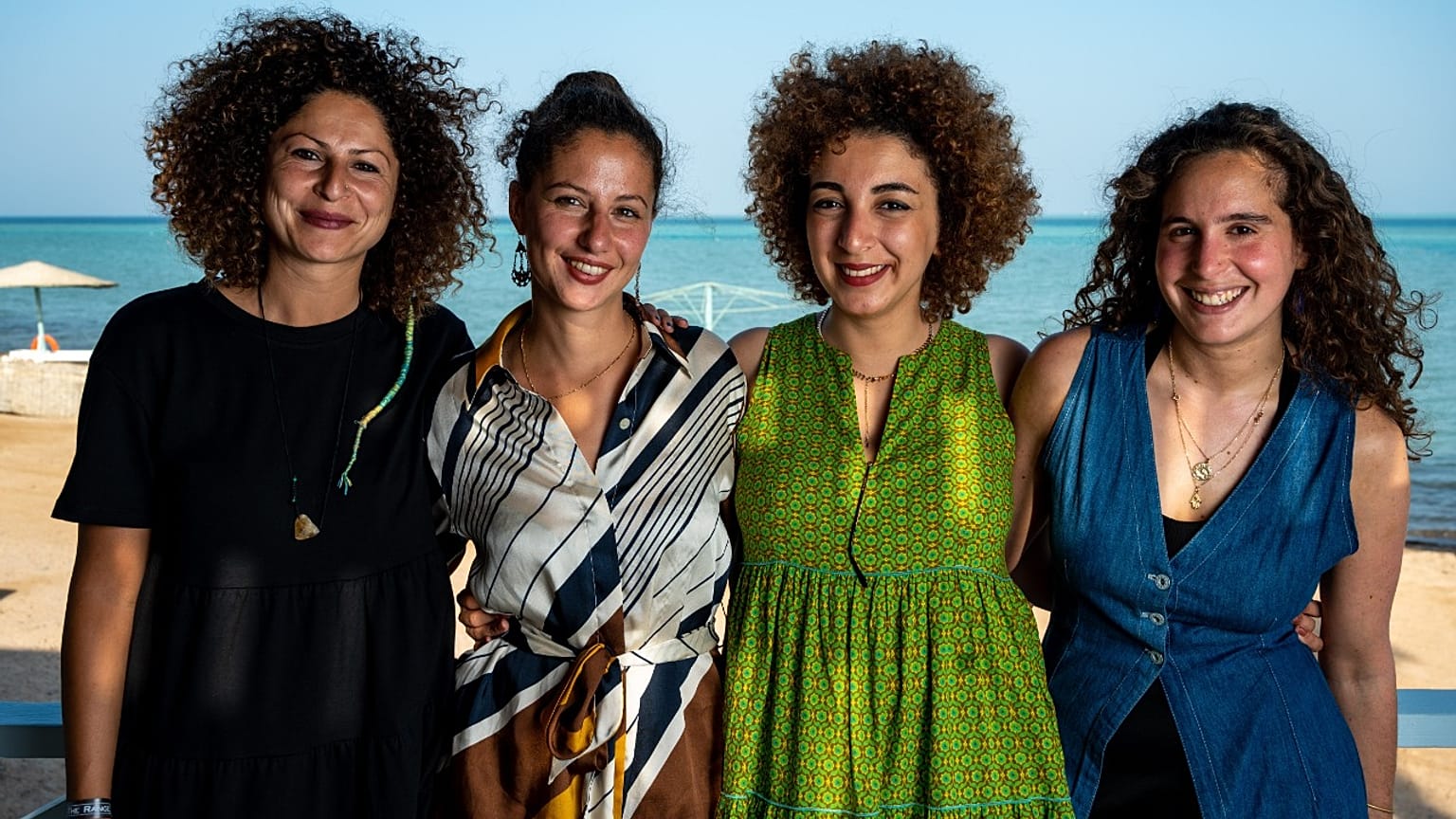The fourth edition of the El Gouna Film Festival (GFF) saw the launch of the 'Sisters in Film, Rawiyat' initiative. The Tunisia-Paris based non-profit came as a part of GFF’s mission to support and empower women in Arab cinema.
The fourth edition of the El Gouna Film Festival (GFF) saw the launch of the 'Sisters in Film, Rawiyat' initiative.
 ADVERTISEMENT
ADVERTISEMENT
 ADVERTISEMENT
ADVERTISEMENT
The Tunisia-Paris based non-profit came as a part of GFF’s mission to support and empower women in Arab cinema.
Founded by nine emerging women directors from across the Arab world, the initiative hopes to support and nurture new and existing female talent and challenge the status quo of the industry.
The idea for the collective was sparked in 2019, while the women met at a regional workshop held in Tunisia and then later again in Morocco. Whilst working together, it soon became apparent that they all shared the same social, cultural, and economic struggles.
“We wanted to do something as if we try to face our problems as a collective, we will be much stronger than facing them individually,” says Rawiyat co-founder, Kawthar Younis to Euronews.
The Egyptian director made her debut feature-length documentary ‘A Present from the Past’ in 2016, but when it came to producing her second film, she lacked the backing needed to get her project off the ground.
For many Arab female directors, the ability to get a second film commissioned is near impossible. As a result young talent is often forced out of the industry. Palestinian-Jordanian co-founder, Dina Naser explains, that without a support network, like Rawiyat, more voices will be lost.
“Because they (female filmmakers) are not able to find the right support, financially or mentally... they don’t manage to do their second film or third film. And not providing them with a space to create and continue their journey means they get lost along the way,” she said.
Naser adds that when producing an independent film on a shoe-string budget, the process can often be isolating and draining, and even more so when the film is made in a region with unrest and conflict.
During last year’s festival, Naser screened her documentary ‘Tiny Souls’, which follows the lives of three children growing up in Za’atari refugee camp in Jordan. Following the children over four years took an emotional toll on the filmmaker.
“It’s important for us to shed the light on the wellbeing of the filmmaker, as no one talks about the aftermath of really dealing with heavy topics and this is something we want to address and want to highlight, and it's part of our mission for the collective to take care of,” Naser told Euronews.
Similarly, Algerian-French director and co-founder, Dorothée-Myriam Kellou felt isolated when making her documentary, ‘In Mansourah, You Separated Us’. The film follows her father’s journey back to the village where he was born, for the first time in fifty years, since the Algerian War of Independence.
“This breaking-the-silence-process is extremely painful and extremely difficult because you are also dealing with your own censorship, what can and can not be told… there is a very long process yourself to do, to break free from it and I’m not sure I even broke free,” said Kellou. “So I think working with these ladies, we will reinforce each other, so we can tackle difficult questions more easily,” she adds.
Alongside the mental hardship of producing a film of sensitive nature on a micro-budget, the women also have to overcome the challenge of working in a patriarchal society.
“Unfortunately because we live in a male-dominated society we find ourselves in the position of pushing harder and working double to prove that we are capable of doing things,” explains Naser.
The women hope that the formation of the syndicate will allow them to produce content that deconstructs misunderstandings and misrepresentations of Arab women while relying on the supportive network to transcend cultural taboos.
Despite the hurdles, more women in the region are entering the film industry. According to a 2016 study by Northwestern University, commissioned by the Doha Film Institute in Qatar, over a quarter of independent Arab filmmakers are female.
With the increase of women pursuing careers in the industry, Kawthar Younis believes that having an encouraging union is more important than ever. “When you’ve been silent for so long and you want to do something, you have to do it with your voice out loud,” she said.
The collective hopes by opening their membership to other women and nonbinary filmmakers, producers, and technicians from across the MENA region and its diaspora, including refugee, indigenous, and non-Arabic speaking filmmakers, more films will be produced and voices heard.














